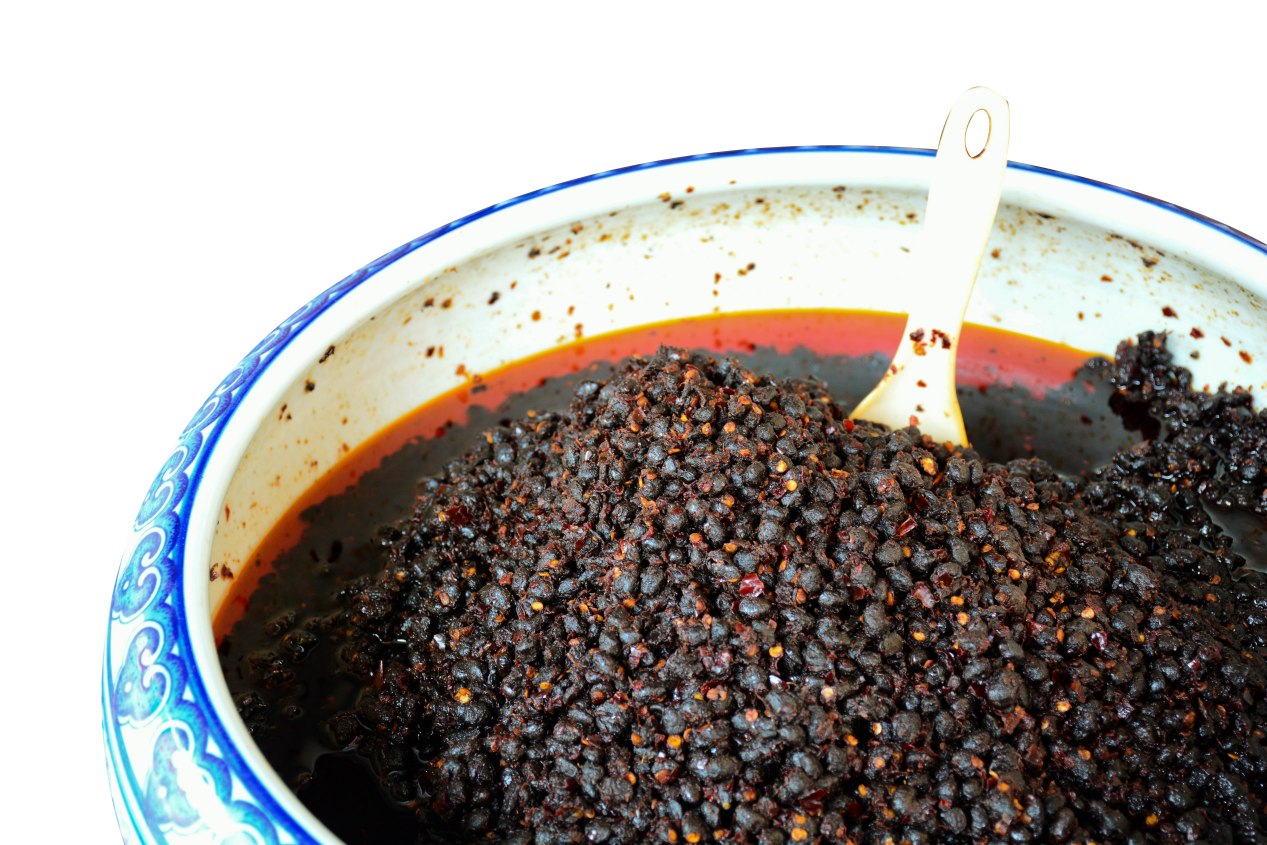Discover the Flavor of an Ancient Town with the Aroma of Yangmei Fermented Black Beans
Publication time:2023-07-26 20:33:31
Written by Editorial Department / Translated by Tang Huiqun
Recall the memory of an old town through the distinctive flavor of fermented black beans, and encounter a cultural successor through the skill of a particular craft.
I once thought that Yangmei's old streets, clear water, ancient buildings, the old people resting by the gate, and the kindness of the owner were the impression that Yangmei had left us when we first met. Yet it was not until the fermented black bean was chewing between the teeth that we found that Yangmei and we had already become acquainted with each other in Guangxi cuisine.
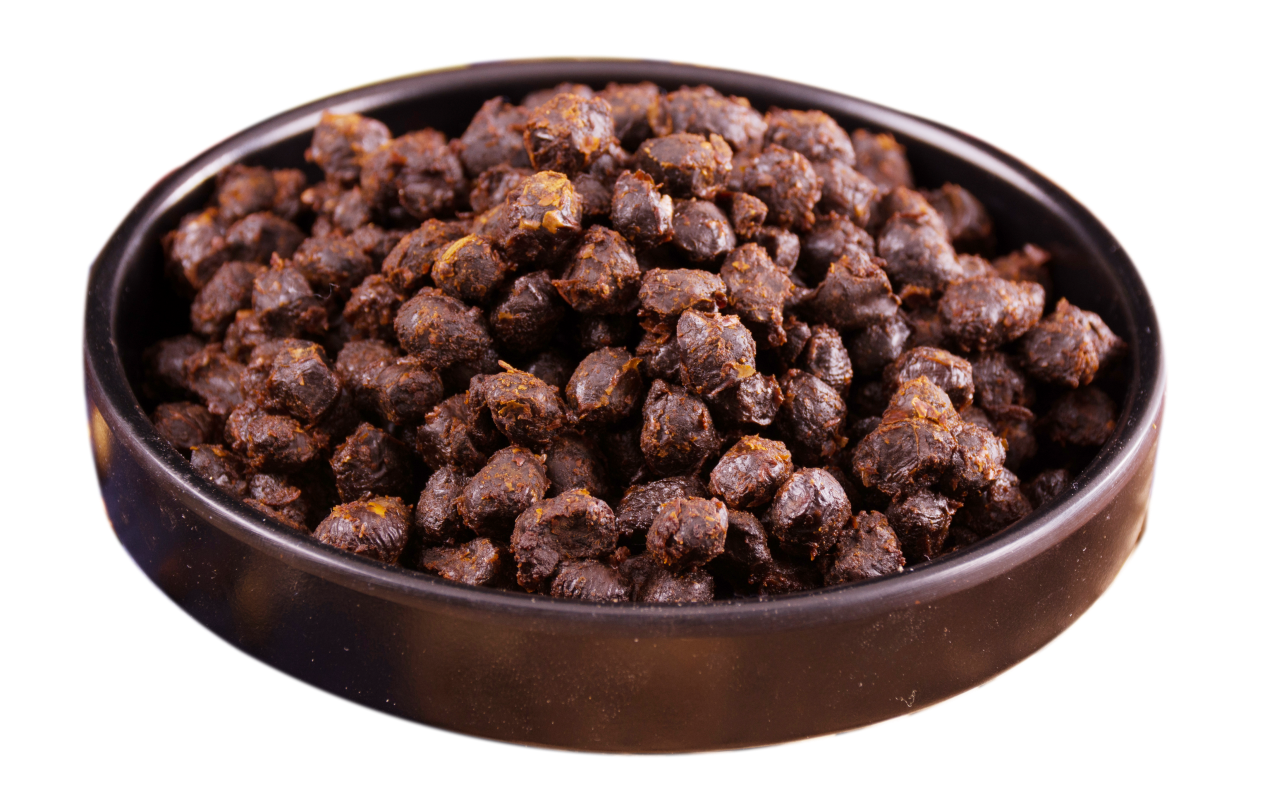
Fermented black bean in Guangxi cuisine
Fermented black bean, due to its ability to add flavor and medicinal benefits, was praised as "an essential ingredient to balance the five tastes" in Liu Xi's book Explain the Name and the Cuisine during the Han Dynasty. The flavor of fermented black beans varies in different areas. In Sichuan and Chongqing, for example, people like to mix various chopped peppers and Sichuan pepper with fermented black beans, making the seasoning spicy and savory. While in Yunnan and Guizhou, black beans are fermented in jars and sealed until it develops a smell but delicious flavor. In Guangdong, canned fish made with fermented black beans is a must-have condiment in every kitchen. In Guangxi, Yangmei fermented black beans are a popular seasoning that adds color and flavor to most Guangxi dishes as an ornament, flavor enhancer, or main ingredient. People cannot realize that fermented black beans are in Guangxi cuisine until they taste its wonderful flavor and can't help but admire it.
Laoyou Rice Noodles is one of the dishes that skillfully utilize fermented black bean in Nanning. The paste and bamboo shoots add a strong aroma and sourness to the soup base, leaving a lasting impression on those who taste it. Fermented black beans are indispensable in typical Guangxi cuisines, such as Stir-Fried Potato Leaves, Braised Pork Ribs, Stir-Fried bitter gourd, and Steamed Chicken Feet. The use of fermented black beans in Guangxi cuisine is a testament to the chefs' accumulated knowledge of flavor and the region's history of black bean cultivation and fermentation, among which the Yangmei fermented black beans in Nanning hold a significant influence.
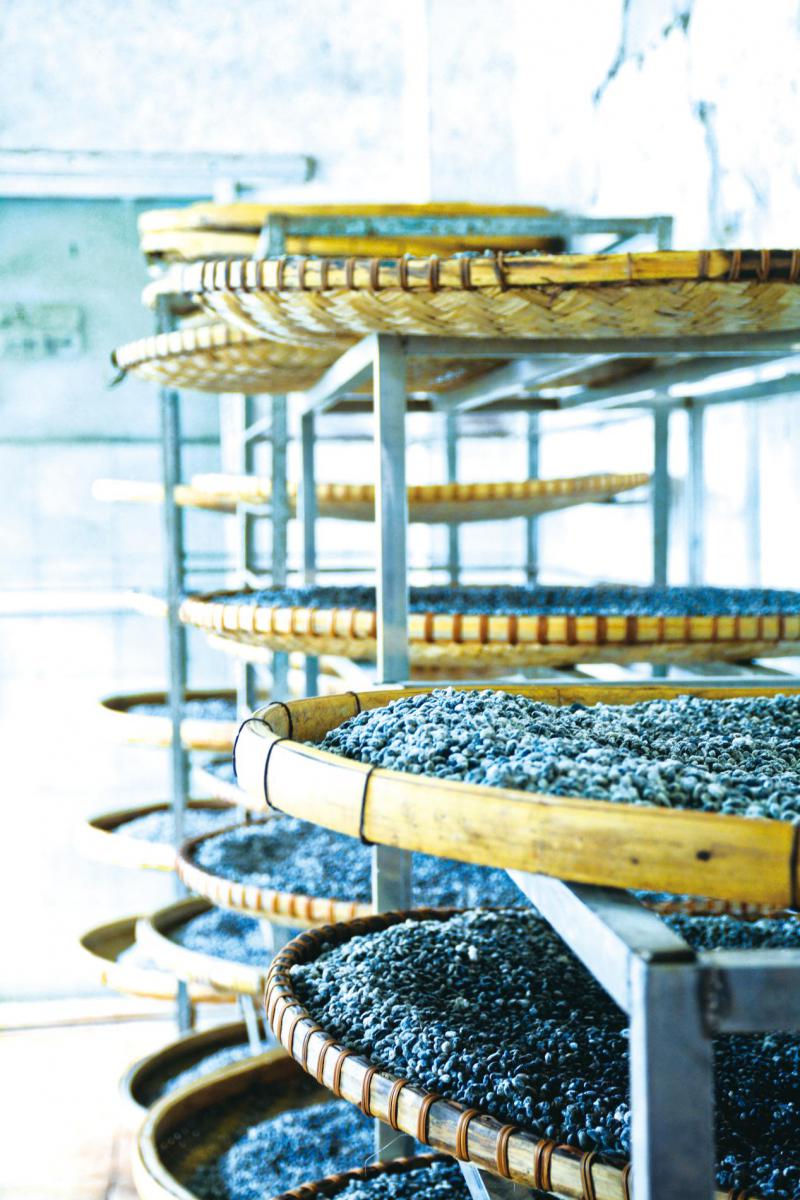
The history of Yangmei fermented black beans
The owner of the fermented black beans stall in Du Jiafang (Du's family workshop in Chinese), Du Xuefen, proudly introduces Yangmei Ancient Town to us, saying "The more exquisite the eaves, the older the age." Du is the representative inheritor of the Yangmei fermented black beans-making technique in Guangxi and also the fifth-generation inheritor of the Du family's fermented black beans-making technique. For him, Yangmei Ancient Town is more than a place where he grew up, but is also the place where he tells the story of his family's heritage.
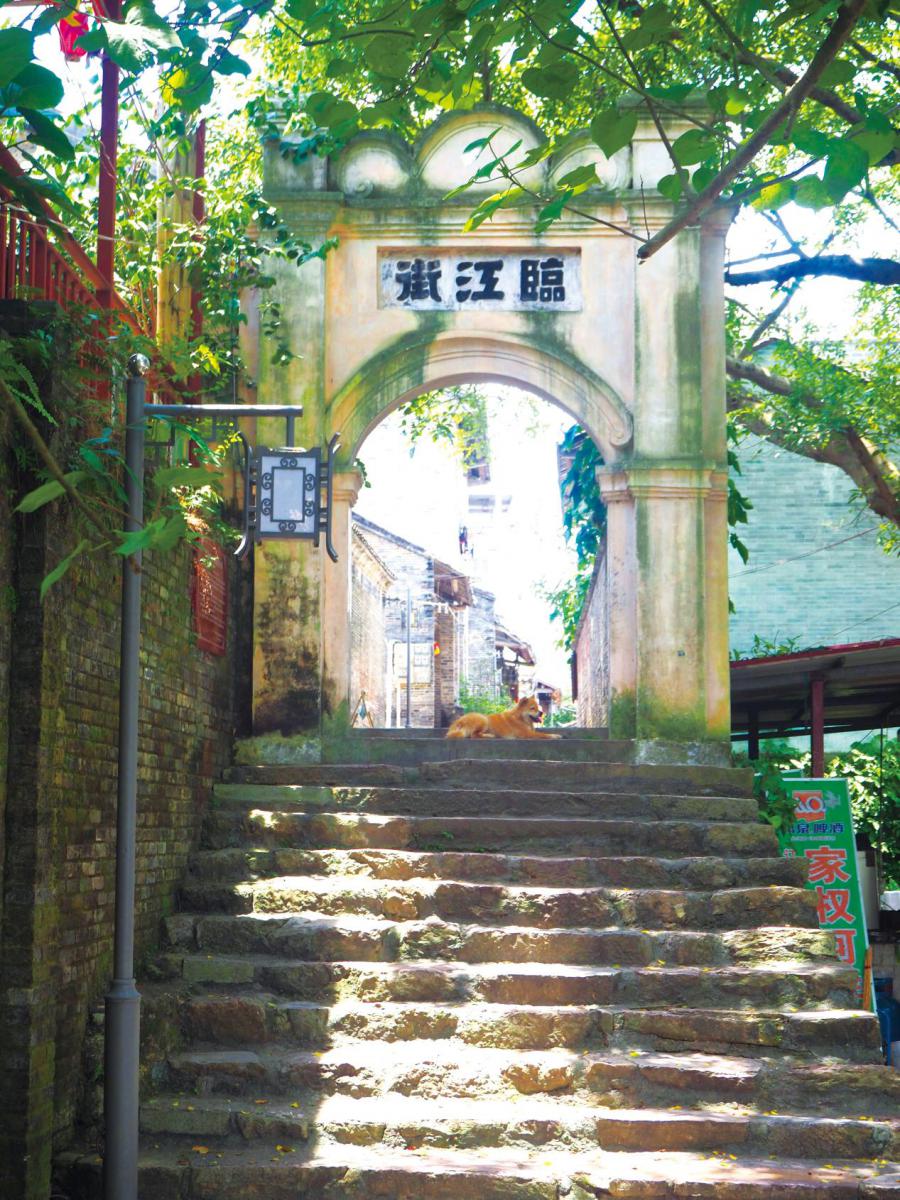
Yangmei Town was established thousand years ago and had been a commerce hub within a hundred kilometers until the Chinese Republican Period. It was surrounded by rivers with eight docks and relied on water transportation. Traders and merchants traveled from north and south to make a deal, making the place extremely prosperous. The fermented black beans, a classic Chinese snack favored by the Han groups in ancient China, were also carried into Yangmei town through the waterways. With innovative improvements by the locals, it has grown into a traditional delicacy with a unique local flavor. In the 1940s, Yangmei fermented black beans once again made their way through water transportation to Guangdong, Guangxi, and even Southeast Asia, resulting in increased prosperity.

From the Republican Period to now, Yangmei Ancient Town transfers from a prosperous commercial port due to its waterways to a quaint ancient town along the water's edge, while the team that carries on the tradition of making Yangmei fermented black beans has become increasingly scarce. Only Du Jiafang continues to use the most complex and time-consuming processes to ensure that everyone can taste the traditional flavor of fermented black beans.
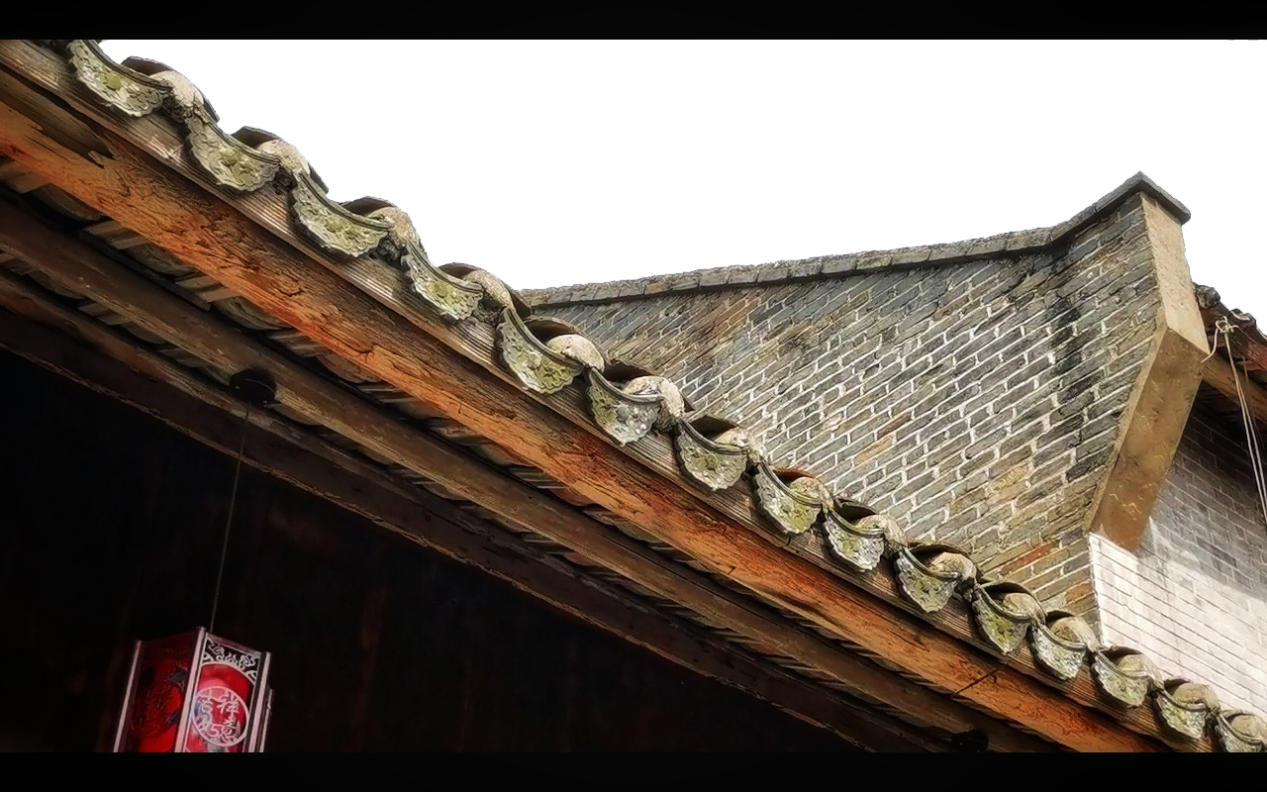
The technique for making fermented black beans in Du Jiafang originated from Du Guangcheng, who started studying and making fermented black beans in the Qing Dynasty. Du Xuefeng recalled that his forefather used to carry fermented black beans on shoulder poles and peddle it along the cobblestone streets of Yangmei Ancient Town, or take boats from Yangmei Port and drive old oxen to sell in workshops located in nearby markets. Du Jiafang opened branches in other towns nearby and their business ran well. During the Republican Period, almost all fermented black beans sold in and outside of Nanning City were produced in Yangmei Town. At its peak, five or six fermented black bean workshops in Yangmei, including "Guangcheng", "Jianhua" and "Du Jiafang," were capable of producing 30,000 to 40,000 kilograms of fermented black beans annually for shipment to Fujian, Shanghai, and other locations.
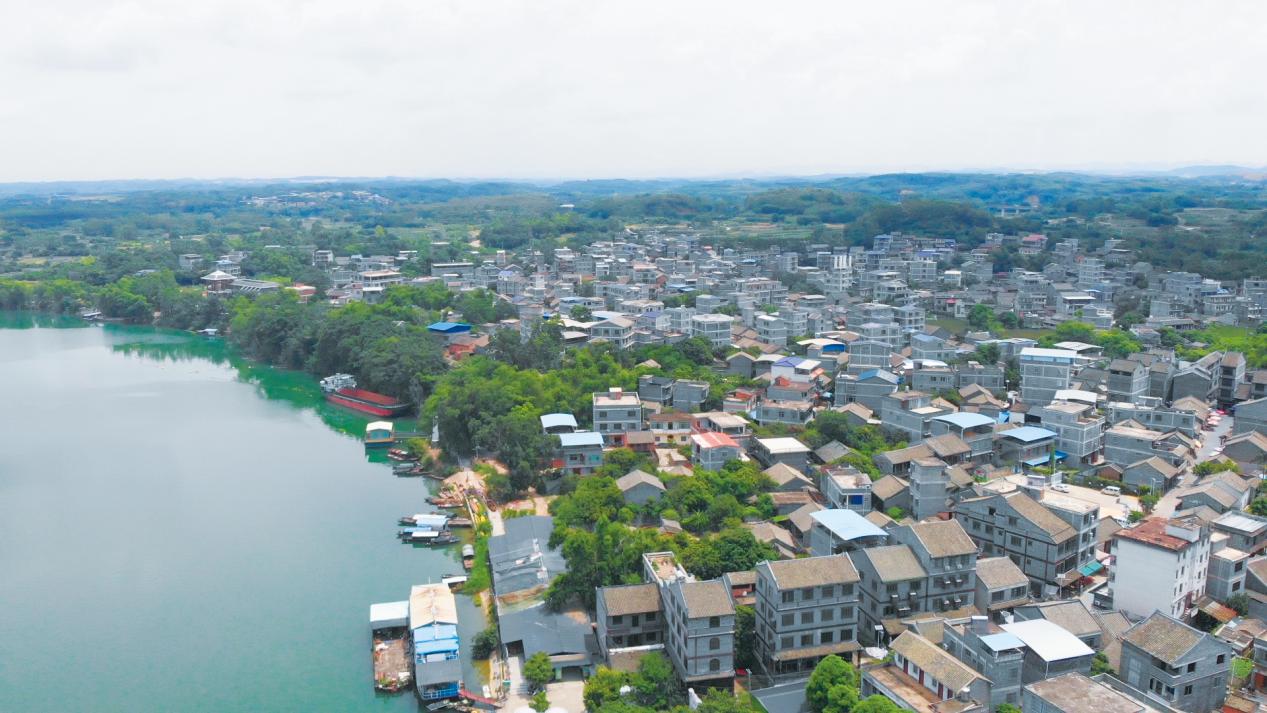
In Yangmei Ancient Town, almost every household would make small batches of fermented black beans as a daily condiment or sell them at the market for extra income. The clean and cool water of the Zuojianghe River, particularly a section called "Lotus Stone," was considered as the best water for washing black beans and people will dry them at that bank. During sunny days throughout the year, the riverbank was dotted with bamboo baskets that were full of fermented black beans emitting a subtle aroma.
Inheriting the technique from father to son
Du Xianqi and Du Xuefen, the inheritors of Du Jiafang, are two generations who grew up with the smell of fermented black beans. At his ten, Du Xianqi, the father of Du Xuefen, was determined to take over his family's fermented black beans business that had been passed down from his father to brother. In his spare time after school, he often went to the family's workshop to help. Seeing that he was "a child capable of being taught," his father imparted to him the key steps of making fermented black beans. "Mastering the time and temperature of steaming and fermenting the black beans is the key to ensuring the quality," Du Xianqi's father told him. Therefore, on the days when they fermented and roasted black beans, Du Xianqi always spared no effort to get up in the middle of the night to check the indoor temperature, fearing that any error could compromise the quality of their final product. Through generations of persistence and strict adherence to quality standards, Du Jiafang has become a household name, with a reputation for producing the best-fermented black beans around.
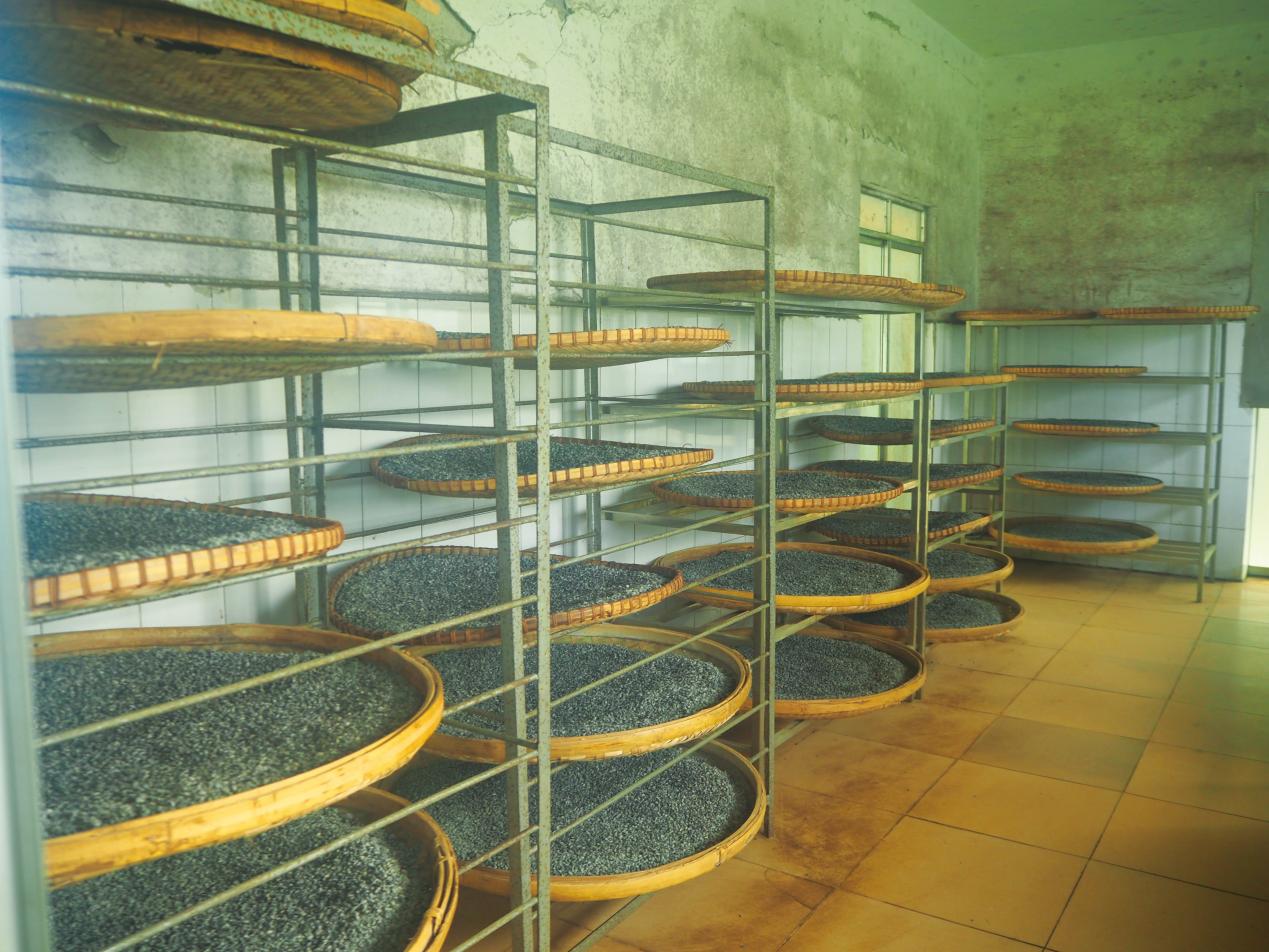
In the late 1950s, the business of Du Jiafang was thriving, but the country faced difficult times. Poor harvest led to the insufficiency of raw materials to make fermented black beans, so the production of them had to be temporarily put on hold. Only after the government's reform and opening up initiative did Du Xianqi and his son Du Xuefen heed the call to bring their business back to Yangmei Ancient Town, which led to the revitalization of local delicacies, and the establishment of the Yangmei Du Jiafang brand.
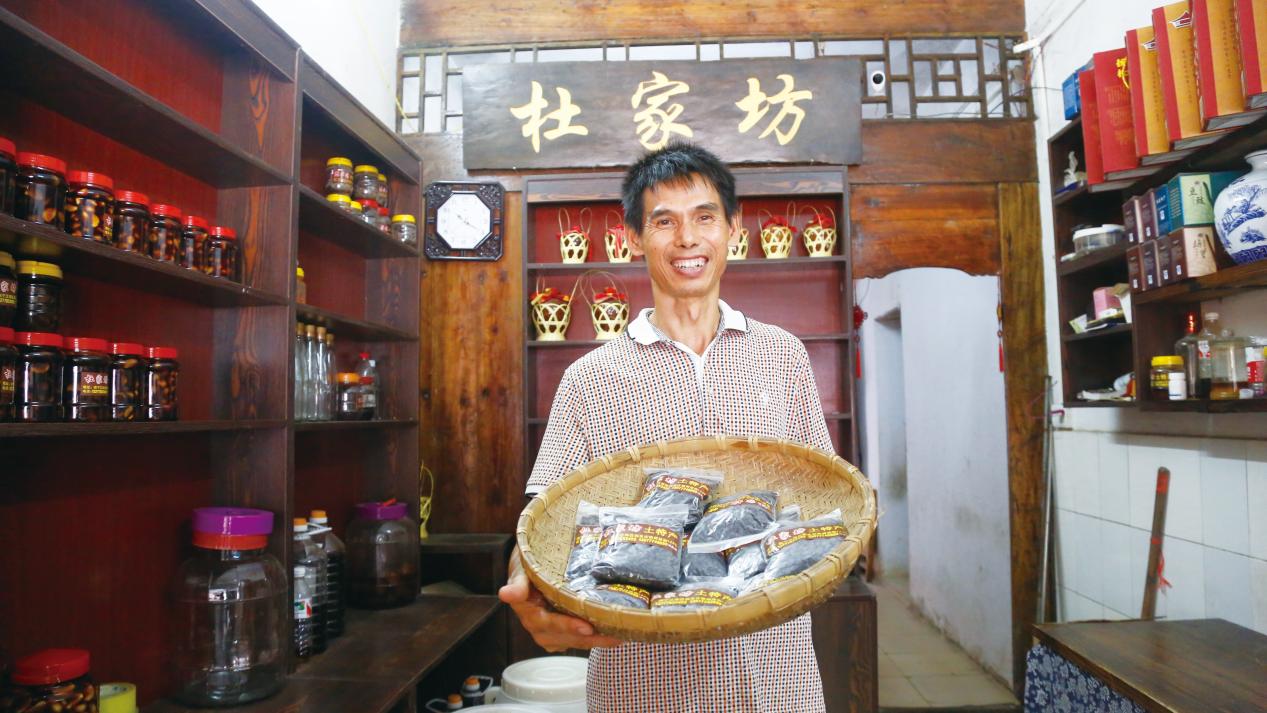
In 1988, Du Xuefen was enrolled in Nanning College for Vocational Technology in 1988 to pursue a degree in food and fermentation engineering. Systematic expertise has helped Du to cushion and transform his family's traditional fermented black beans-making skills from the impact of modern production techniques. He introduced modern technology to traditional techniques and built a production base for fermented black beans in Yangmei Ancient Town with a space of more than 1,300 square meters. His innovation resulted in an increase in the yield of a batch of fermented black beans that can reach more than 2,000 jin (1000 kg) with production time reduced by 50%. Du's reform ensured the preservation of traditional flavors and improved the overall stability of his product. In order to protect and revitalize Yangmei fermented black beans, the local government encouraged him to conduct training sessions that focused on passing on, helping, and teaching others to preserve this invaluable technique. The government also provided support in terms of renovating and expanding Du Jiafang.
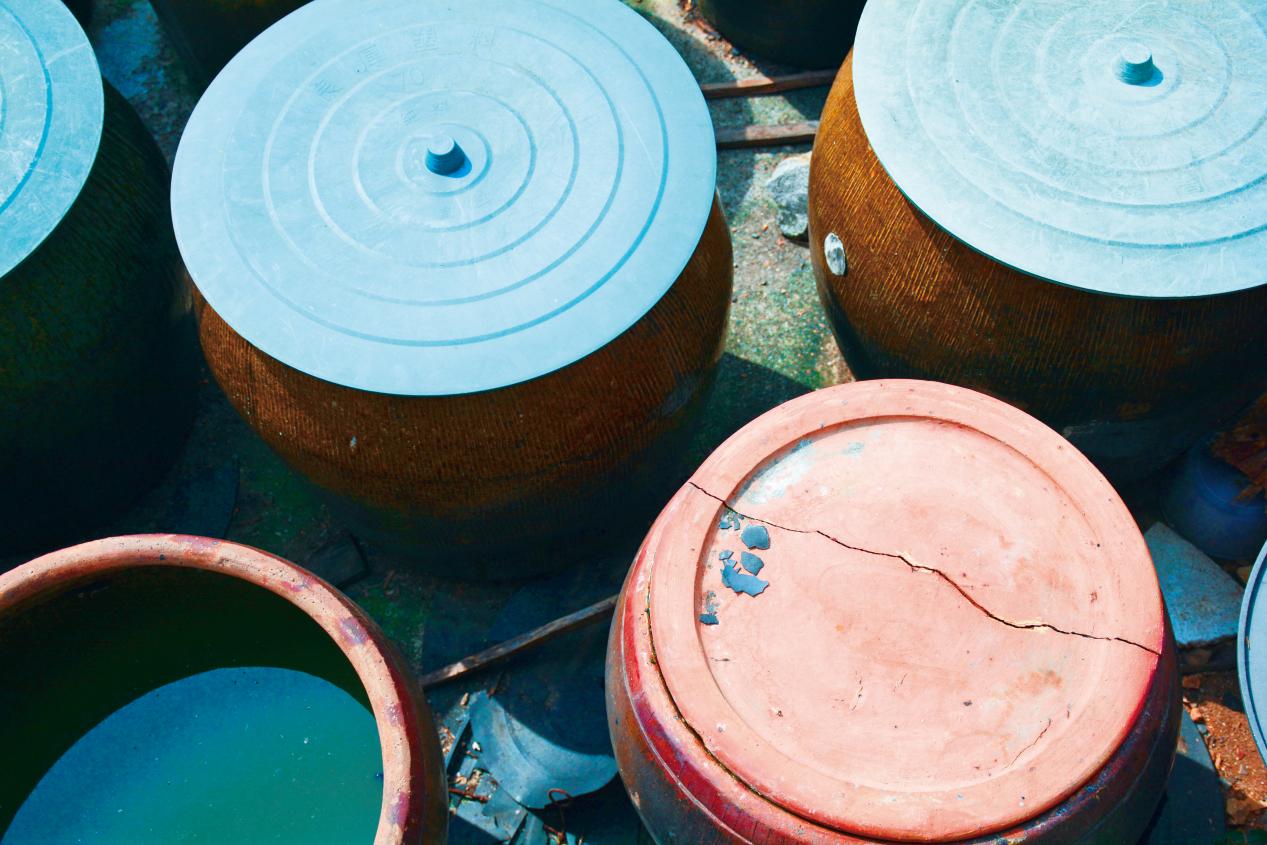
Today, Du Jiafang's Yangmei fermented black beans have an annual production of over 40,000 jin (20,000 kg). The brand is not only available in cities near Nanning but has also entered the tourism and retail markets due to the growth and expansion of rural tourism in Yangmei Ancient Town. As Du Xuefen told us, "A tourist from Anhui has tried our fermented black beans in Yangmei Ancient Town and now orders a batch every year to make his own sauce." Thanks to Du's efforts, the strong and savory flavor of these fermented black beans has not only wafted into Yangmei Ancient Town but also in the homes of people in other cities.
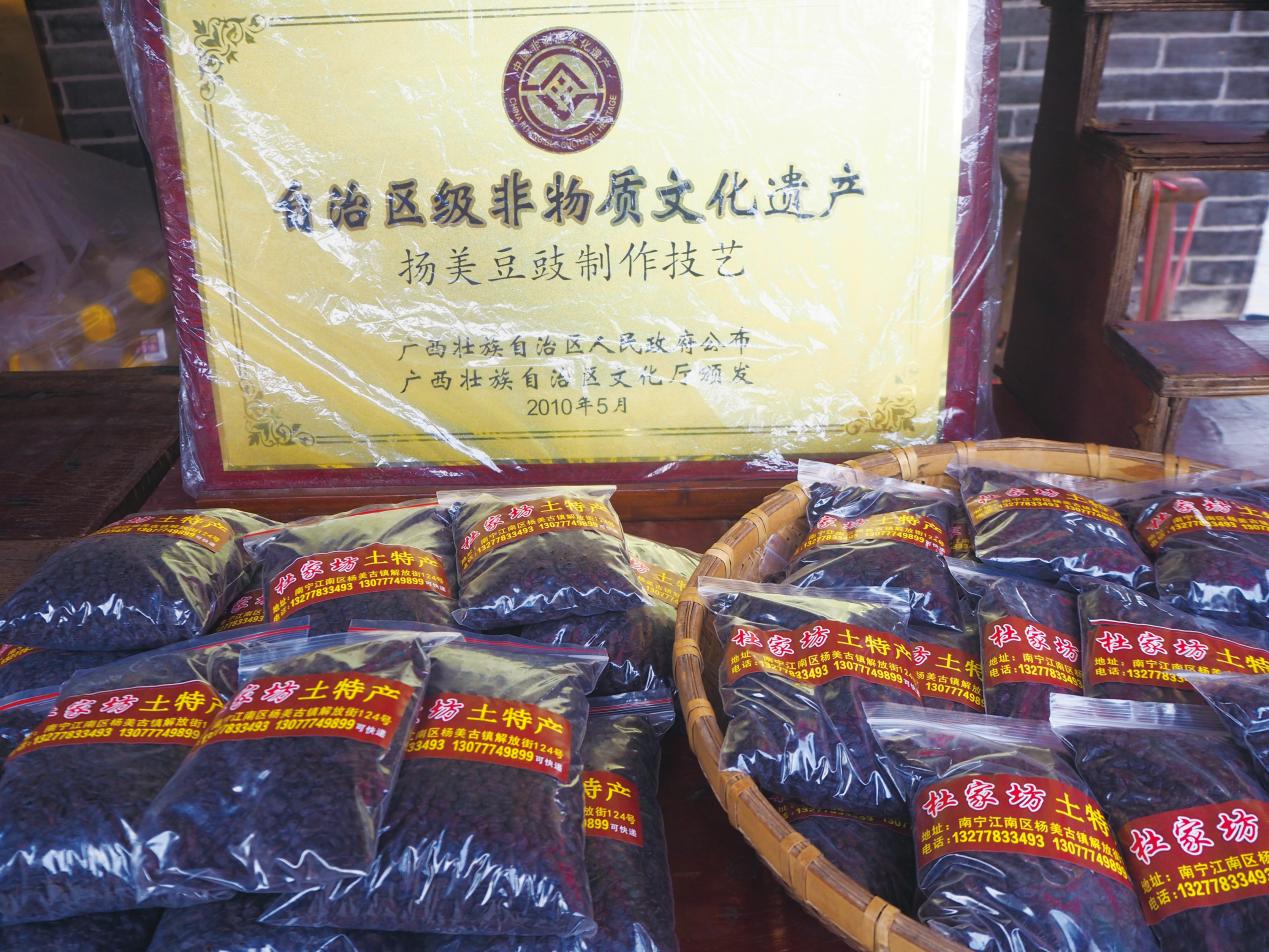
As we taste the fermented black bean, its subtle saltiness spreading between our teeth, we are reminded of the story of Yangmei Ancient Town from a prosperous commercial port to a quiet one, and the tortuous fermentation history of Yangmei fermented black beans from the end of Qing Dynasty to now, which echoes the five generations in Du Jiafang sticking to the making technique. It seems that Yangmei fermented black beans in the mouth have a more distinctive flavor because of this cultural heritage.
